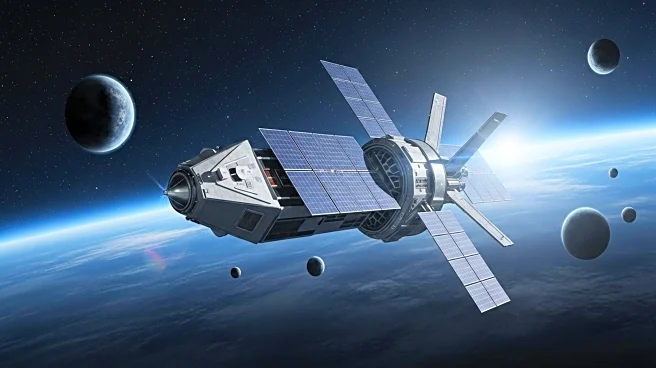What's Happening?
The White House's budget request for fiscal year 2026 proposes a 25% cut to NASA's overall budget and nearly a 50% reduction in funding for the Science Mission Directorate. This could result in the cancellation of funding for at least 41 missions, including 19 that are currently active. These missions, which study Earth's climate and explore the Solar System, are at risk as the current budget expires at the end of September. Congress must act to prevent a government shutdown and potentially extend current funding levels into the new fiscal year. Lawmakers have drafted their own budget bills, which largely reject the proposed cuts, but the final decision remains pending.
Why It's Important?
The proposed budget cuts could significantly impact NASA's ability to conduct critical scientific research and maintain its leadership in space exploration. The cancellation of active missions could result in the loss of valuable scientific data that may not be collected for decades. The cuts also threaten the continuation of missions that have already exceeded their original design lifetimes but continue to provide important insights. The decision by Congress will have long-term implications for the U.S. space program and its ability to compete globally in space exploration.
What's Next?
Congress has until the end of September to finalize the budget and prevent a government shutdown. If a continuing resolution is passed, it could extend current funding levels temporarily. The outcome of the budget negotiations will determine the future of NASA's missions and its ability to maintain its scientific and exploratory capabilities. Stakeholders in the space community are closely monitoring the situation, as the decision will impact the direction of U.S. space policy and research.








